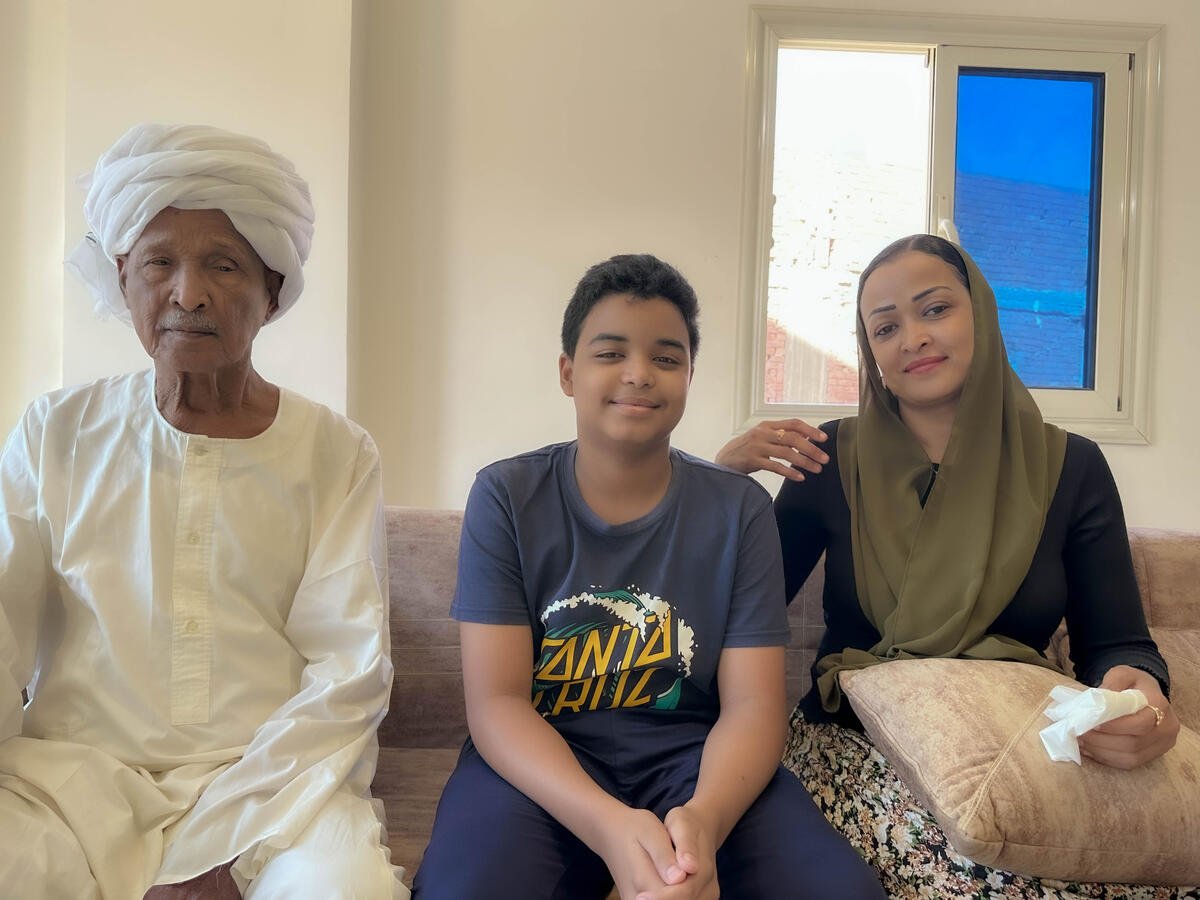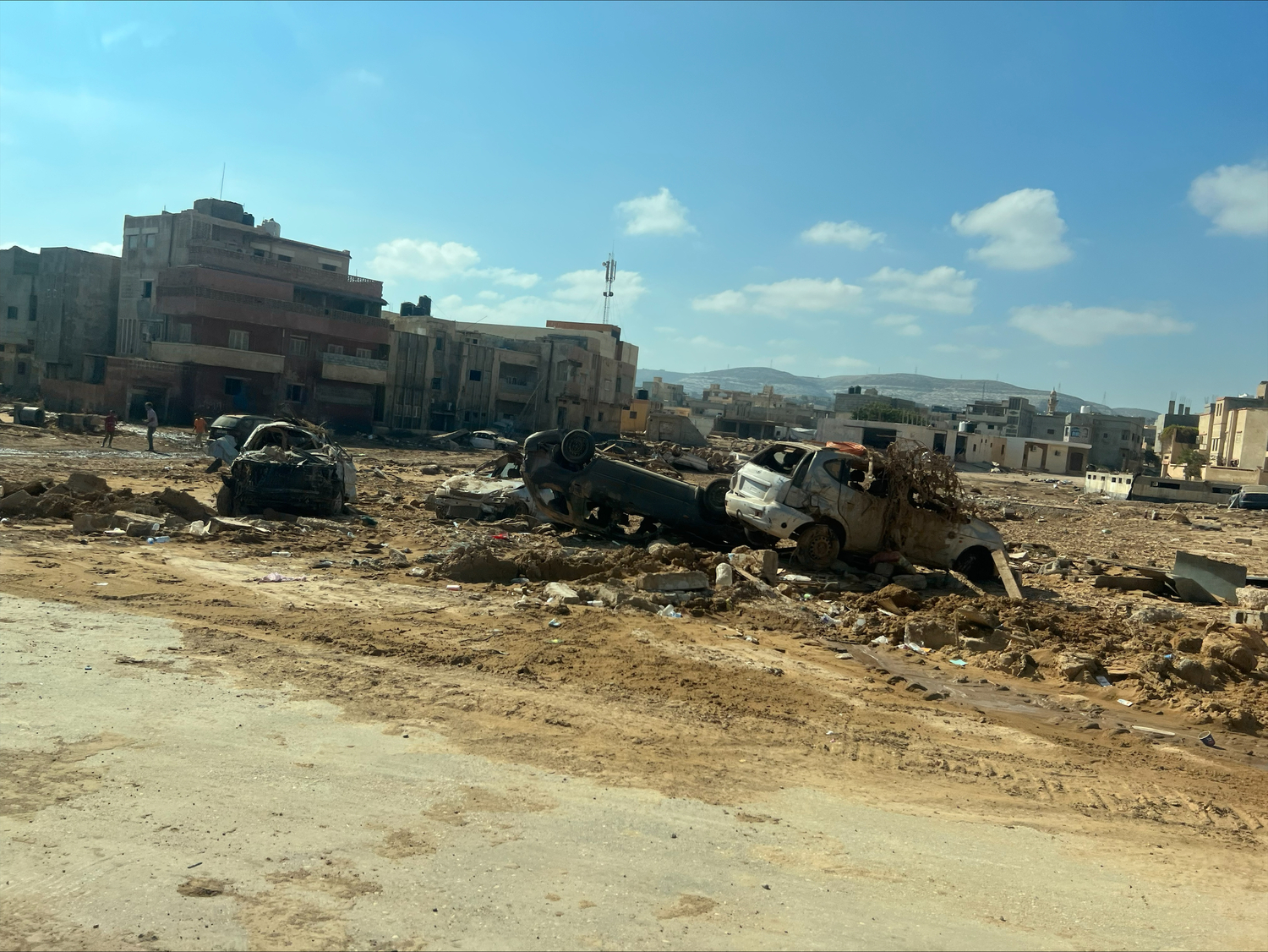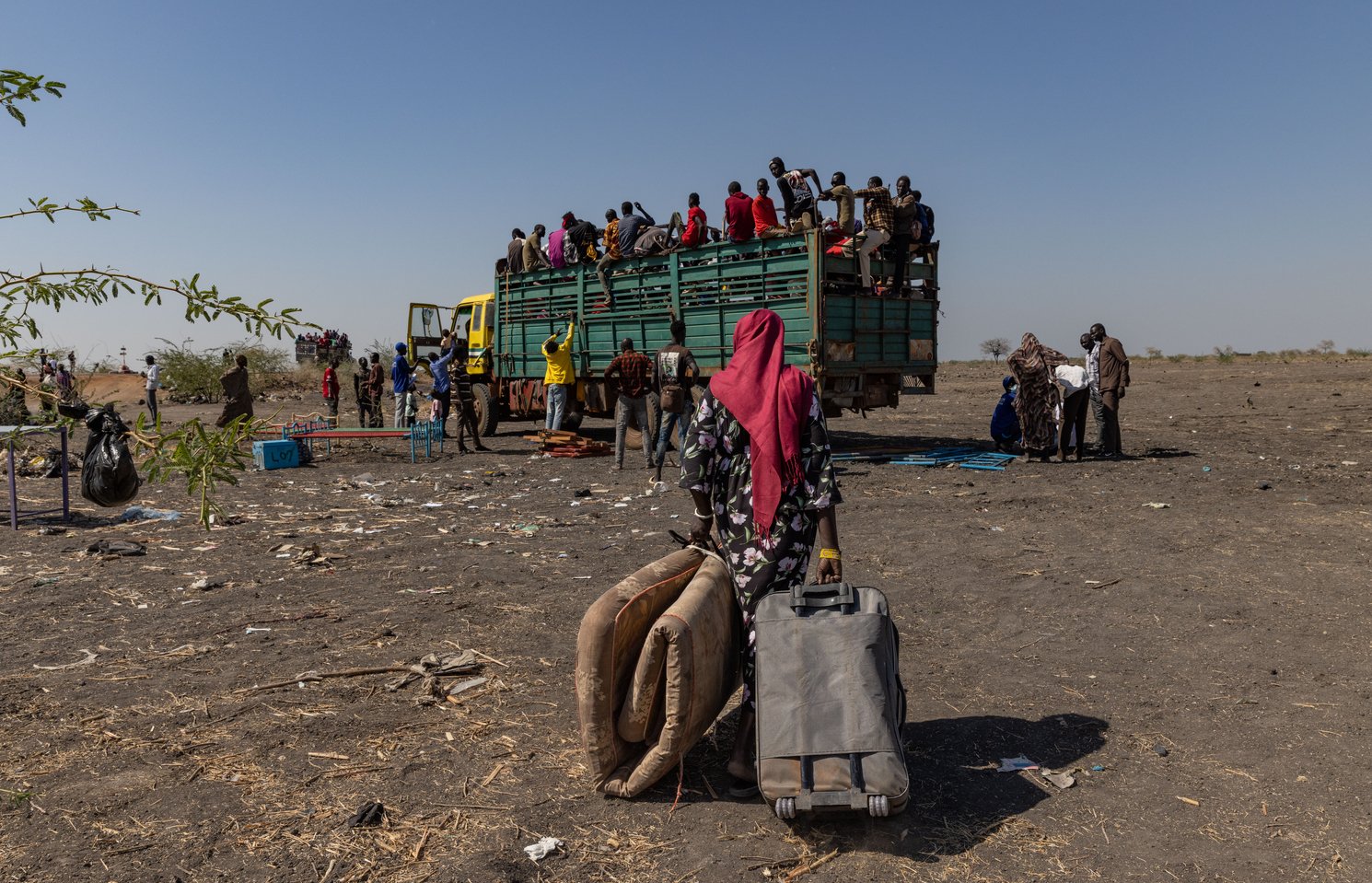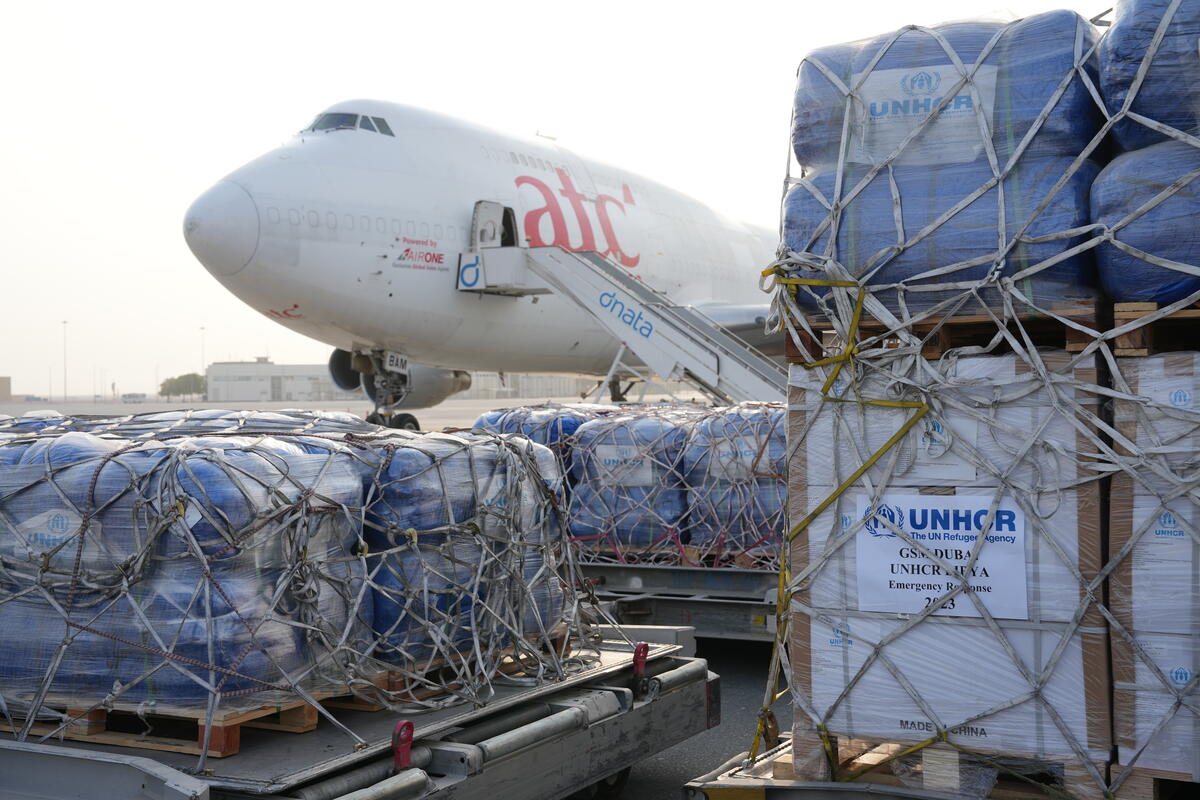UNHCR works to improve conditions for hundreds at Egyptian border
UNHCR works to improve conditions for hundreds at Egyptian border

SALLUM, Egypt, March 22 (UNHCR) - The cramped site for refugees at the Sallum border crossing has to be one of the most difficult UNHCR is facing anywhere. "The location where the refugees and [other] people of concern are accommodated is, by any definition, in the wrong place," said Yvan Sturm, head of the UNHCR team in Sallum, where the agency has been providing vital protection assistance and material aid for the past year.
It's largely a warren of makeshift homes built haphazardly between two busy roads and in the shadow of six massive UNHCR tents and customs and immigration buildings at the Egyptian end of no-man's land. The site houses more than 2,000 people who can't go further into Egypt and don't want to go back to Libya or their home countries. What's more it's located in a military zone, which makes it even more complicated to bring in assistance.
"The conditions are far from what they should be," added Sturm, a veteran Swiss aid worker who has been deployed to improve the situation and streamline the UNHCR operation. He said a solution was in sight with government assistance.
Last year, Sallum was global news with more than 300,000 people, mostly Egyptians and migrant workers, passing through to escape the conflict in Libya. But those unable to go home were not allowed to leave the border area. Some 240 have since been resettled in Scandinavia, Canada, Switzerland and the United States, but the others are still waiting to discover their fate, including women and children in need of a proper education.

A senior border official said the proximity of so many civilians in the border area was leading to tension with drivers and affecting operations at the crossing, which has filled with makeshift refugee dwellings and busy shops and restaurants made of wooden frames, sheeting and blankets.
Some are located close to latrines and leaking waste, a health hazard, while wires criss-cross the site, tapping into the electricity mains without authorization and posing a risk of fire or electrocution. And some people use gas stoves in their shelters.
A few days after Sturm talked, a blaze did break out in a market area and consumed about 50 structures. There were no deaths or injuries, and it was not the first such incident, but it did highlight the need for a solution.
Sturm said the answer was a new, professionally planned and managed site. "A new site has been proposed by the government in the same location, still within the border area," he said. "It is an area of 95,000 square metres where we are going to install 400 tents."
It would be under UNHCR management, self-contained, include all necessary facilities and utilize the highest standards. "This is the best idea," said the senior border official. The proposed site is currently wasteland stretching down towards the Libyan border, populated by scorpions and not much else, but it should help to improve the safety and quality of life for those stuck at the border, mostly young Sudanese men, hoping for resettlement.
Almost 1,700 of those at Sallum have been referred for resettlement, mostly to the United States, but they could be waiting for months before departure, making it imperative that they have decent living conditions away from busy border operations in this difficult location. A further 300 have been told by UNHCR they won't be considered for resettlement, but they still remain here.
Almost everyone that UNHCR spoke to had grievances. "The conditions are so bad here," said Al-Tahir, from West Darfur in Sudan, complaining about health care, lack of education for his children and the quality of food. The refugee agency runs a daily clinic for primary health care at the border, while the Egyptian Red Cross and a women's group from Sallum distribute three meals daily for UNHCR.
Al-Tahir and others were also concerned about security. "People [in the camp] are fighting every day," he said. Most women and children stay in the big UNHCR tents, but some were concerned about their safety with so many single men around.
"It is a very serious security problem," one female refugee, who has been referred for resettlement, told UNHCR. She said women were especially vulnerable when they went to the toilet. "As a woman, you cannot live alone." In a managed, carefully laid out and enclosed camp, such problems would be much easier to address effectively.
Sharif from Sudan was not as concerned about security, but he worried about his family, who stayed in one of the large warehouse tents. "The children are suffering a lot and my wife does not feel comfortable."
Sturm, meanwhile, acknowledged that UNHCR had faced obstacles with the quality of assistance at Sallum, but stressed that it had delivered in terms of quantity. He cited the daily food rations, the distribution of some 9,000 blankets and regular hand outs of clothing, hygiene and sanitation goods as well as the provision of a 25.3 litres of water per day per person.
"The difficulty with these people of concern, and that is a challenge for us, is that because all of them want to leave, everything done for them is not good enough and is not fast enough," explained Sturm.
He also revealed that daily management of the Sallum site was being taken over by UNHCR partner, Islamic Relief Worldwide, allowing the agency to concentrate more on its vital protection work, including refugee status determination, resettlement and psycho-social counselling. "We wanted to bring back protection as the main objective for UNHCR," he stressed.
By Leo Dobbs in Sallum, Egypt








